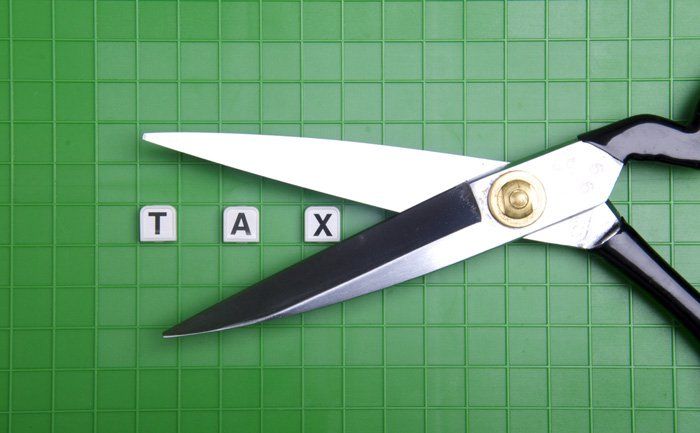Lawmaker pushing for personal income tax rate to drop to 4.5%
by January 30, 2023 7:08 pm 1,291 views

During the legislative session, lawmakers will look into cutting taxes. Rep. David Ray, R-Maumelle, has filed HB 1097, which would reduce the top tax rate for the personal income tax from 4.9% to 4.5%.
In an interview with Talk Business & Politics, Ray explained it is important to move in the direction of lowering the income tax, because states that have moved in that direction are the states that are gaining population.
“We want to attract jobs, new movers, capital and investment to our state, so we can grow our economy,” Ray said.
According to the Tax Foundation, 10 states enacted income tax reductions in 2022.
Ray noted over the past eight years, legislators in Arkansas, led by former Republican Gov. Asa Hutchinson, have lowered the top income tax rate from 7% to 4.9%, which is the lowest in modern state history. He added all taxes are economically harmful in some way and the state needs to continue its work in lowering the income tax.
“Obviously, the state needs revenue in order to provide services to its citizens, but income taxes are particularly damaging. It disincentivizes hard work, labor and productivity,” Ray said.
According to a financial statement from the Department of Finance and Administration, the tax rate of 4.5% would begin in 2023 if HB 1097 were passed.
The revenue impact shows a $100 million general revenue reduction in the 2023 fiscal year and a $200 million general revenue reduction in the following year. The financial statement also shows about 800,000 individual taxpayers with income over $23,600 would have their taxes lowered.
In the 2021 legislative session, lawmakers included certain revenue triggers that had to be met in order for tax cuts to take effect. There aren’t any included in the bill filed by Ray, but he says there are discussions among lawmakers to include them.
“I think revenue triggers are a good approach if you want to phase in a tax cut over several years,” he said.
Sen. Jonathan Dismang, R-Beebe, the chairman of the Joint Budget Committee, has been a big voice on tax policy in the last decade. He said on this weekend’s Capitol View TV program that he expects triggers to define what size tax cuts may be enacted after big ticket items – such as education and sentencing reform – are factored into the budget.
Over the past few years, inflation and funding from the CARES Act and American Rescue Plan Act have helped Arkansas reach budget surpluses. When asked if there are any concerns about if the state can handle further tax cuts once inflation is back to normal and federal dollars dry up, Ray said the state is in a strong fiscal position.
“We have lowered taxes consistently, year after year for the last eight years and we are still experiencing record surpluses.The people who cried wolf every time we cut taxes and said that it’s going to diminish basic services have been consistently proven wrong,” he said.
Democrats, such as House Minority Leader Rep. Tippi McCullough, D-Little Rock, have argued that tax cuts are leading to shortfalls in education investment, prisoner rehabilitation, and a more stable healthcare system. The state needs to wait and see what needs could be met before cutting more taxes, they argue.
Ray explained the surpluses are also a result of a growing economy.
“There’s a lot of factors that have contributed to the increase in our surplus, some of it is due to inflation and federal COVID spending, but it’s also in part to our economy growing,” Ray said. “The fact that we’ve experienced economic growth is proof that the income tax cuts that have been enacted over the past eight years are working.”
State officials are working on prison reform that could include $500 million for prison beds. The state is also set to lose an estimated $487.5 million from Medicaid once a formula for the program returns to its pre-pandemic form. Even with these conditions, Ray said he feels comfortable moving forward with the tax cuts.
“Obviously, the budget has to balance and there are many expenses to take into consideration. But there’s no reason we can’t walk and chew gum at the same time,” Ray said. “For the past eight years, we’ve responsibly lowered income taxes while addressing key spending priorities, and the situation we find ourselves in today is no different.”
Ray noted the personal income tax reduction is one part of a larger tax package he hopes will be considered. He explained HB 1097 and future bills he plans to file are a way to get a conversation started about possible tax reform. He doesn’t have a set timeline on when the bills could be filed or debated.
When asked about other possible tax proposals, Ray said other proposals include doubling the standard deduction, reducing the corporate tax and adjusting the tax brackets to account for inflation.
